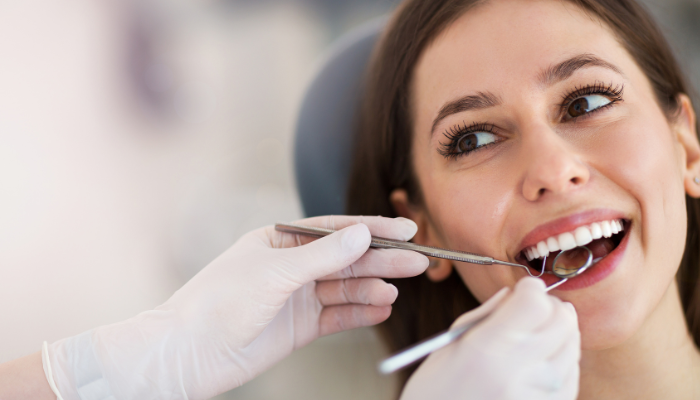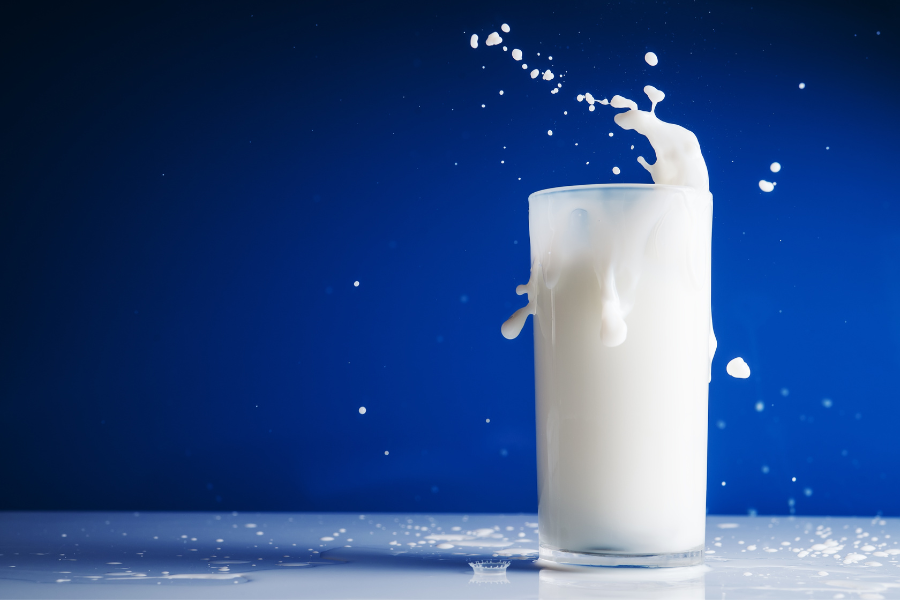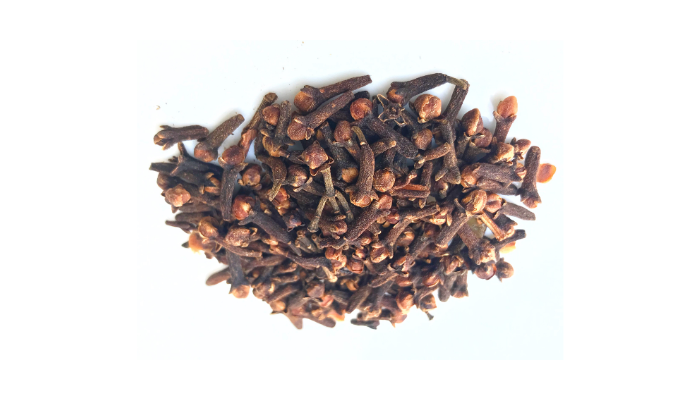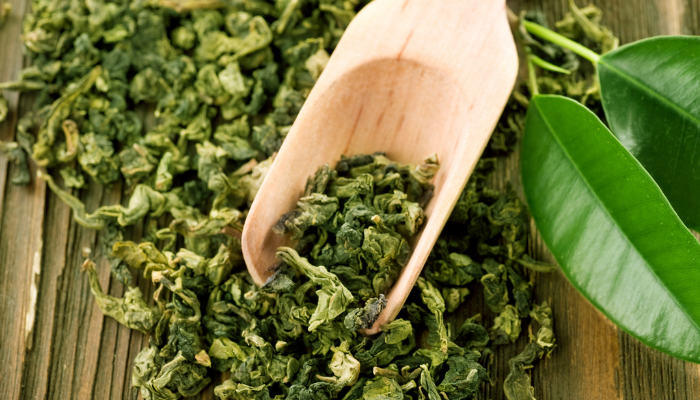Nothing shatters our self-esteem more than talking to someone and seeing them walk away, trying to disguise their disgusted face, doesn’t it?
The worst thing is that most of the time, it’s practically impossible to know that we have bad breath. Unless we’ve stuffed ourselves with onions and garlic or can count on an honest friend, we’ll hardly have any clue that we need to freshen up our breath.
But you don’t have to worry! I’ve got your back! The good news is that this problem can be solved with natural home remedies that are easy and effective for eliminating bad breath without going to the dentist. And I bet you can find many of them in your pantry right now.
In today’s article, we’ve brought you some tips and homemade recipes to get rid of bad breath once and for all! Check them out below.
Contents
- 1 How does bad breath arise?
- 2 Effective home remedies for bad breath
- 2.1 1. Good oral hygiene
- 2.2 2. Water
- 2.3 3. Vegetables like cucumber and carrots
- 2.4 4. Fruits like apples and oranges
- 2.5 5. Milk
- 2.6 6. Fennel or clove seeds
- 2.7 7. Pineapple or lemon juice
- 2.8 8. Zinc
- 2.9 9. Green tea
- 2.10 10. Apple cider vinegar
- 2.11 11. Homemade alcohol-free mouthwash:
- 2.12 12. With baking soda
- 2.13 13. With Vinegar
- 2.14 14. With warm water and salt
- 2.15 15. Herbal rinses
- 2.16 16. Rinse with tea tree oil
- 2.17 17. Cinnamon Oil
- 2.18 18. Unsweetened natural yogurt
- 2.19 19. Probiotic yogurt
- 2.20 20. Probiotic supplements
- 2.21 21. Chewing gum
- 3 What are permanent solutions to eliminate bad breath?
- 4 When should you see a doctor?
- 5 Summary
- 6 FAQ
How does bad breath arise?
In most cases, bad oral hygiene is one of the main causes of bad breath. That’s why good oral hygiene habits can help you get rid of the problem once and for all.
That is because food particles accumulate in our mouths and teeth when we don’t maintain good oral health. Harmful bacteria then accumulate on these food particles and form a film known as plaque.
Plaque produces not only a nasty, unpleasant smell in our mouths but also a bad breath. When harmful bacteria break down the food that remains in the mouth, it releases a gas, which causes bad breath.
Another cause is the ingestion of certain foods, which, when digested, liberate sulfur into our mouths, and when it reaches our bloodstream, it causes bad breath.
If you recently changed your diet, this may be the possible cause of your bad breath.
Cases of halitosis or recurrent bad breath can be associated with periodontal diseases in general, especially gingivitis and tooth decay, which also cause bad breath.
Some medications and diseases can also have a side effect of halitosis, such as gastric diseases, diabetes, infections, some kidney diseases, and pulmonary diseases like sinusitis.
In both cases, it is crucial to treat the root cause of the problem, and you will likely need specific medical treatment.
Effective home remedies for bad breath
Now, let’s get down to business! These are the tips and effective home remedies for bad breath that we’ve put together, especially for you.
1. Good oral hygiene

The Golden Tip for good oral health!
As we saw at the beginning of this article, the leading cause of bad breath is poor oral hygiene. The build-up of food that remains in our mouths when we stop brushing our teeth forms plaque, which is a den of harmful bacteria that causes bad breath by breaking down sugar and starch residues on the teeth.
This unpleasant odor is bad breath.
On the bright side, it’s up to us to get rid of bad breath in this case! It’s not as difficult or impossible as you might think. You just need to follow three simple, daily steps for good oral hygiene:
Step 1: Brushing your teeth twice a day
Step 2: Flossing every day
Step 3: Finish with mouthwash
Bonus Tip: Brush or scrape your tongue to eliminate even more bacteria from your mouth!
Commit to these simple, easy-to-follow steps. Do it every day to regain your self-esteem and get rid of your mouthwash once and for all!
No one is going to do this for you. Except us! If you already practice good oral hygiene every day, check out the following tips, one of which is definitely for you!
2. Water

Hydration is an essential ally in getting rid of bad breath. A hydrated mouth produces the amount of saliva needed to keep your mouth healthy.
Saliva is responsible for rinsing away the harmful bacteria that cause bad breath and also helps clean away food debris that remains in the mouth. It also helps to eliminate the accumulation of sugars and citric acids from some foods, preventing harmful bacteria growth in the mouth.
Therefore, keeping yourself hydrated throughout the day is essential for the health of your mouth. And there’s nothing better than drinking water (H2O) to stimulate saliva production. Generally, an average of 8 glasses of water a day is recommended.
It’s also worth remembering that many places, such as here in the United States, also have tap water with fluoride. The fluoride is essential for oral health by keeping your teeth strong and healthy.
So, by drinking water, you’ll stay hydrated and be able to absorb the ideal amount of fluoride for a healthier mouth. Plus, you’ll avoid a dry mouth.
3. Vegetables like cucumber and carrots
A diet rich in healthy foods is more than suitable for the health of your body and your mouth.
Foods like cucumbers and carrots are great for cleaning your teeth! They work like natural toothbrushes and help remove the bacteria that cause bad breath.
The bonus is that they are refreshing foods. Make your breath fresher and stimulate saliva production.
4. Fruits like apples and oranges
You can eat garlic to your heart’s content now! But remember to eat an apple afterward!
Apples are great for removing the smell of garlic from your mouth. It has natural compounds that deeply neutralize the smell of garlic right into your bloodstream. So, if you have that garlic smell that sticks in your mouth, get an apple for yourself!
Oranges, like other citrus fruits, are a rich source of Vitamin C. They are excellent saliva producers, which, as we have seen, play a fundamental role in oral hygiene by preventing the build-up of bacteria that cause bad breath and helping to clean food residues from the mouth.
5. Milk

A curious tip is milk! It also has the power to neutralize the smell of garlic and other strong-smelling foods, such as onions.
In addition, it’s recommended to drink a glass of milk after meals to clean away more acidic food residues and prevent dental erosion.
6. Fennel or clove seeds

Fennel seeds are super refreshing and will leave your mouth tasting delicious! Not only fennel but also star anise, or just aniseed, have been used since ancient times to leave the mouth fresh and free of foul odor.
We can’t go against an ancient culture that still promotes miracles these days, can we? Use it as you like the most, natural seed or toasted. But avoid those with sugar for a healthier mouth.
Clove not only deodorizes the mouth, giving it a refreshing sensation, but also an excellent antibacterial and anti-inflammatory. It will help to leave your mouth healthier, fresher, and free of bacteria that cause bad breath and tooth decay.
Chew a few throughout the day, and let us know in the comments!
Be careful when handling cloves in oil or powder to avoid suffering from burns.
7. Pineapple or lemon juice
Pineapple juice or even eating a slice of pineapple after meals works miracles for your breath. It will give you a refreshing sensation and help to eliminate foul odors.
The same goes for lemon juice, which is refreshing and rich in Vitamin C, which stimulates saliva production and helps keep your teeth and mouth cleaner.
Afterward, brush your teeth to remove any sugar and acid residue from your mouth.
8. Zinc
Increasing zinc intake can also help you get rid of bad breath for good.
It can cancel out sulfur compounds in the mouth, preventing bad breath and plaque, and is also a potent anti-inflammatory.
Include more seafood, red meat, and dairy products in your diet, as they are an excellent source of zinc.
An alternative is natural zinc-based supplements, which you can easily find in your nearest pharmacy or online store. Be sure to check out our supplement recommendations here!
9. Green tea

Green tea has antioxidant properties that are well known to the general public. But one thing they don’t usually talk about is the disinfectant and deodorizing effect it also has.
That way, it’s a good option for keeping your breath refreshed and odor-free for a while.
Other herbs, such as mint, also have this refreshing effect when consumed as tea or as a seasoning for food. They are also old tricks for keeping bad breath at bay.
Chewing mint throughout the day prolongs the feeling of fresh breath.
10. Apple cider vinegar
Apple cider vinegar (AVC) has astringent properties. It will get rid of the smell of garlic and onions from your mouth, balancing your pH and preventing the proliferation of harmful bacteria in your mouth.
You only need a glass of water and a spoonful of apple cider vinegar. Mix the two well. Take a sip and gargle for about 30 seconds, then spit it out.
Prevention rather than cure! Use the same apple cider vinegar recipe as above. This time, drinking its contents before eating acid meals to prevent bad breath.
11. Homemade alcohol-free mouthwash:
A dry mouth is possibly one of the leading causes of bad breath.
That is why bad breath is worse in the morning when you wake up. It’s normal for our mouths to become drier during sleep. The drier our mouth is while we sleep, the worse the morning smell.
Alcohol dehydrates our body as a whole, and it’s not recommended to use mouthwash with alcohol in it precisely to avoid drying out our mouths.
But I know how difficult it is to find good alcohol-free mouthwashes on the market. I’ve put together a collection of homemade, alcohol-free mouthwash recipes that you can make in the comfort of your home using ingredients from your pantry.
12. With baking soda
That is a very common and easy recipe to make. All you need is a little baking soda and water. To a cup of warm water, add two tablespoons of baking soda. Mix well. Gargle for about thirty seconds and spit it out.
13. With Vinegar
The vinegar-based homemade, alcohol-free mouthwash recipe is also straightforward to make. You can use any vinegar in the pantry, but prefer apple cider or white vinegar. Add one to two teaspoons of vinegar for a one-cup measure of water. Stir well and gargle for 30 seconds, then spit the liquid out.
14. With warm water and salt
Mouthwash with warm water and salt is also very effective and has anti-inflammatory properties. A little warm water with a pinch of salt will do the trick and leave your breath cleaner and your gums healthier.
You can repeat this as often as you like, and it’s important not to ingest the rinses, especially the salt-based ones, as they leave you dehydrated. We want to preserve and improve your oral health, not leave your mouth dry. Remember it.
15. Herbal rinses
Homemade herbal mouthwashes are an excellent alternative for those looking for a natural and vegan option. Without all those chemical compounds in most mouthwashes, you find them in the pharmacy aisles. And most importantly, alcohol-free. To avoid damaging the oral flora and drying out your mouth.
Here’s a little recipe that I love to make at home, and it is the perfect complement to my daily oral hygiene. If stored properly, we have alcohol-free mouthwash ready for two weeks!
You’ll need a container to store the liquid we’ll make (it can be a small bottle you already have at home).
Ingredients:
- Water (approximately 120 ml)
- Essential oil of your choice (cinnamon, fennel, mint, tea tree oil, or whatever you already have at home)
- Salt (a pinch – ½ teaspoon)
- Baking soda (1 teaspoon)
Instructions:
- Pour water into the container you’re going to use, but don’t fill it to the brim
- Drip 3 drops of essential oil
- Add a pinch of salt
- Add the bicarbonate of soda
- Mix all the ingredients. Cap the bottle and shake well.
Now, your homemade, alcohol-free mouthwash is ready to use! Complement your daily oral hygiene routine by gargling at least thirty seconds with this solution.
If you want to improve your solution, you may add honey and use two different types of oil with other properties. It’s up to you!
Remember, always spit out the liquid after gargling! Some essential oils may not be suitable for your health.
Always shake the bottle before use!
16. Rinse with tea tree oil
Tea tree oil, or Melaleuca, has antibacterial, anti-inflammatory, and antiseptic effects. In particular, it fights the bacteria that produce sulfur and releases the gases responsible for bad breath into our mouths.
Although it doesn’t replace brushing with traditional toothpaste and preferably with fluoride in its formula, you can brush your teeth using tea tree oil. You may apply a few drops directly to your toothbrush or enhance your toothpaste by adding a few drops to brush your teeth afterward.
Tea tree oil-based mouthwash is another excellent way to keep your mouth free of bad breath.
You can also make a homemade mouthwash with the main ingredient being tea tree oil, which is a powerful natural antiseptic in itself.
Here’s our homemade recipe that you can make at home, too! Separate a glass of warm water and the vegetable oil of your choice. Mix well with a few drops of vegetable oil and just one drop of tea tree oil. Gargle thoroughly for about thirty seconds and then spit it out.
Ingesting tea tree oil can be harmful to your health. Take care not to swallow the solution while gargling.
17. Cinnamon Oil
Cinnamon is another spice with antibacterial effects and is widely used to combat bad breath.
It is commonly found in oral health products. Its refreshing and slightly spicy flavor makes it an alternative to mint when it comes to chewing gums.
An alternative method is cinnamon oil, which can be used to gargle. Use the same recipe as for tea tree oil mouthwash. A glass of warm water, vegetable oil, and cinnamon oil. A few drops of vegetable oil into the warm water, add the cinnamon oil and stir well. Gargle for thirty seconds and spit it out.
Watch out! Do not ingest the cinnamon oil or any kind of essential oil.
18. Unsweetened natural yogurt
Here’s one of the most potent allies in the fight against bad breath! There’s nothing better to fight harmful bacteria than by filling your mouth with good bacteria!
Yogurt is a common source of probiotics, which are nothing more than good bacteria. The famous lactobacilli. They help make your mouth healthier by balancing the bacterial flora of your mouth.
So, whenever you have yogurt, preferably natural and unsweetened, of course. Make sure you enjoy a little of it in your mouth. This way, you’ll have a great chance of impregnating your mouth with good bacteria. The one that is beneficial to your oral health and will help fight bad breath.
19. Probiotic yogurt
Probiotic yogurts are even better than plain unsweetened yogurt.
That is because probiotic yogurt, as the name suggests, has a higher concentration of probiotics in its formula.
It makes it possible to boost the action of lactobacilli to make your mouth even healthier and free from periodontal problems and, consequently, bad breath.
Kefir is one of these drinks with a high concentration of probiotics and can be an excellent alternative to natural yogurt.
Try to include at least one portion of one of these drinks in your daily meals to help prevent bad breath.
20. Probiotic supplements
If you have problems with lactose intolerance, you can always turn to natural supplements.
Probiotic supplements, for example, are a great alternative for ingesting the necessary amount of lactobacilli to keep your mouth healthy and free of those unpleasant odors we want to avoid so badly.
I’ve made a unique selection for you with the most sought-after products on the market. Take a look at the link below.
And you can also find them easily in pharmacies and online stores.
21. Chewing gum
Chewing gum and mint candies are excellent palliatives for a quick and effective solution to bad breath. But they are a temporary solution as they don’t tackle the root of the problem.
Still, if you suffer from bad breath, chewing gum is a very effective trick, and it’s worth having it on hand in case of an eventuality.
And did you know that chewing gum helps produce saliva? Yes, chewing gum stimulates saliva production. As saliva cleanses your mouth of harmful bacteria and food debris, chewing gum will make your breath fresher and your mouth cleaner.
But don’t even think about using gum with sugar! Always buy the sugar-free options to keep your mouth healthy.
What are permanent solutions to eliminate bad breath?
Without a doubt, there is no better way to eliminate bad breath permanently than by adopting good oral hygiene habits. Foods rich in vitamins, minerals, and probiotics are also essential.
The health of our body and mouth is directly linked to good hygiene and healthy eating habits. But there’s no point in eating foods rich in vitamins and minerals to strengthen our teeth; prevent periodontal disease and bad breath if we don’t brush our teeth daily.
Daily brushing, at least twice a day, is essential in order to eliminate food residues from the mouth. In addition, you need to floss your teeth at least once a day. Hugging both sides to clean the dirt between the teeth that the toothbrush can’t reach.
Use an appropriate, alcohol-free mouthwash to finish your daily oral hygiene.
And don’t forget to see your dentist twice a year. In addition to a more thorough oral cleaning, this will help you diagnose and treat possible periodontal diseases from the outset, preventing more severe problems in the future. Take advantage of this!
When should you see a doctor?
It’s important to see a professional if the problem persists, even after you’ve tried some of the home remedies we’ve discussed.
Recurrent bad breath or halitosis indicates that it’s not a simple problem of poor oral hygiene or a bad diet that causes bad breath but a more severe problem that should be treated and monitored by a doctor or dentist.
Summary
Poor dental hygiene is the most significant cause of bad breath, so adopting good oral health habits is the first step to getting rid of bad breath.
It’s essential to clean the dirt between your teeth at least once a day with dental floss. Brush your teeth twice daily. Complete your hygiene routine with an alcohol-free mouthwash not to dry out your mouth.
If you can’t brush your teeth after meals, at least drink water to clean your mouth and eliminate sugar and unwanted food residues.
Maintaining a healthy diet is also important, especially if you add foods and fruits to your diet that help clean your teeth and make them healthier.
And, if by any chance the cause of your bad breath is linked to periodontal disease or another health problem that causes bad breath, it’s essential to seek the help of a professional in the field so that they can give you the most appropriate treatment.
Take good care of your health to have a dreamy Hollywood smile and fresh, healthy, and friendly breath!
FAQ
1. Can cloves cure bad breath permanently?
Clove is an excellent ally against bad breath because, as well as leaving a pleasant taste in the mouth, it is also a powerful antibacterial. Eliminate the harmful bacteria that cause bad breath.
But be careful when opting for oil infusions, which, if used directly on the skin, can cause burns.
2. What is the best home remedy for bad breath?
Homemade mouthwash has proven to be one of the best home remedies for bad breath.
In pharmacies, websites, and apps, it’s more common to find mouthwashes with alcohol in their formula. Alcohol, in turn, reduces saliva production, leaving your mouth dry and more prone to bad breath.
If you can’t find a mouthwash without alcohol, try the recipe we’ve given you in this article, and let us know what you think in the comments!
3. What drink kills bad breath?
Citrus fruit juices rich in Vitamin C are a powerful ally in getting rid of bad breath. That is because Vitamin C stimulates the production of saliva, and saliva is fundamental in the fight against bad breath by cleaning food debris and bad bacteria from the mouth.
4. What keeps bad breath away?
After adequately hydrating your body, with an average intake of 8 glasses of water a day, good oral hygiene will keep bad breath away and help you get rid of bad breath once and for all and have refreshing breath!
Follow the tips in this article, and if the problem persists, be sure to consult a professional.
